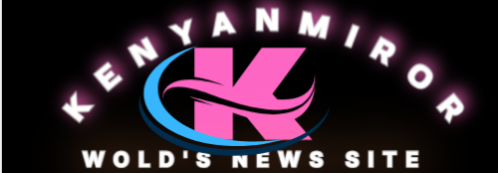A Kilifi-based company has become the first in Africa to be prequalified to produce syringes that auto-disable after injection, preventing reuse.
Revital Healthcare EPZ, is one of the eight manufacturers prequalified by the World Health Organization to produce such syringes, but is the first in Africa.
Syringes with a reuse prevention feature are often called auto-disable (AD) syringes and are currently the gold standard for safety in immunisation programmes.
Revital said production of syringes within the continent is expected to decrease average syringe transport times by up to 80-90 per cent for Africa. This is critical for rapid outbreak response and timely immunisation campaigns.
“Revital’s historic WHO pre-qualification for the early-activation AD syringe exemplifies the transformative power of African innovation and manufacturing excellence. Our commitment to the well-being of our fellow people, especially children receiving life-saving immunisation, is our motivation to continue to progress,” Revital’s director of marketing and sales Roneek Vora said.
WHO pre-qualification is given after inspections confirm that a key health product meets global standards of quality, safety and efficacy.
The company said it will produce upwards of 300 million AD syringes per year.
This work was made possible through a grant from the Bill & Melinda Gates Foundation, which invested Sh577 million ($3.9 million) in the company in 2021.
The company expanded its workforce to the current 500 people, the majority of whom are women from the local community.
“As the first African manufacturer to be approved by WHO to produce early activation auto-disable syringes, Revital is paving the way to expand local production of syringes,” director of immunisation at the Bill & Melinda Gates Foundation Violaine Mitchell said.
“We are proud to support Revital’s efforts to sustainably expand the supply of these syringes in Africa and ensure vaccines are delivered safely and quickly across the continent.”
Global demand for auto-disable syringes surged in 2021 as the rollout of Covid-19 vaccines progressed around the world.
Estimates made that year projected a significant shortfall in AD syringes, which would acutely impact both Covid-19 vaccination and childhood immunisation, including the roll-out of new malaria vaccines, in low- and middle-income countries, particularly in Africa.
Since 1999, the WHO, UNICEF, and the United Nations Population Fund have recommended exclusive use of AD syringes globally for immunisation as they “present the lowest risk of person-to-person transmission of blood-borne pathogens such as hepatitis B or HIV” because AD syringe needles cannot be removed or reused.
They have features that automatically lock once the injection begins or ends, depending on the type. It may break if an attempt is made to reuse it, or the needle may automatically retract.
All AD syringes provide fixed doses, meaning they can only be filled with the exact amount for one vaccine dose. Most vaccines, including those for many essential childhood immunizations, are administered using a 0.5 ml dose volume and matching AD syringe.
Currently, Revital manufactures 45 essential medical disposables ranging from syringes, Rapid Diagnostic Test Kits for Covid and Malaria, PPE kits, surgical face mask and viral transport medium kits.
